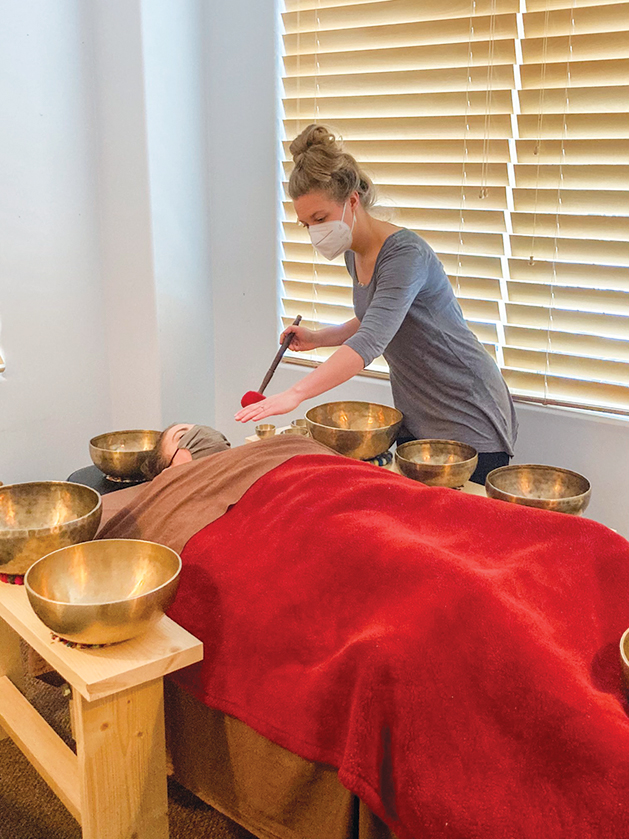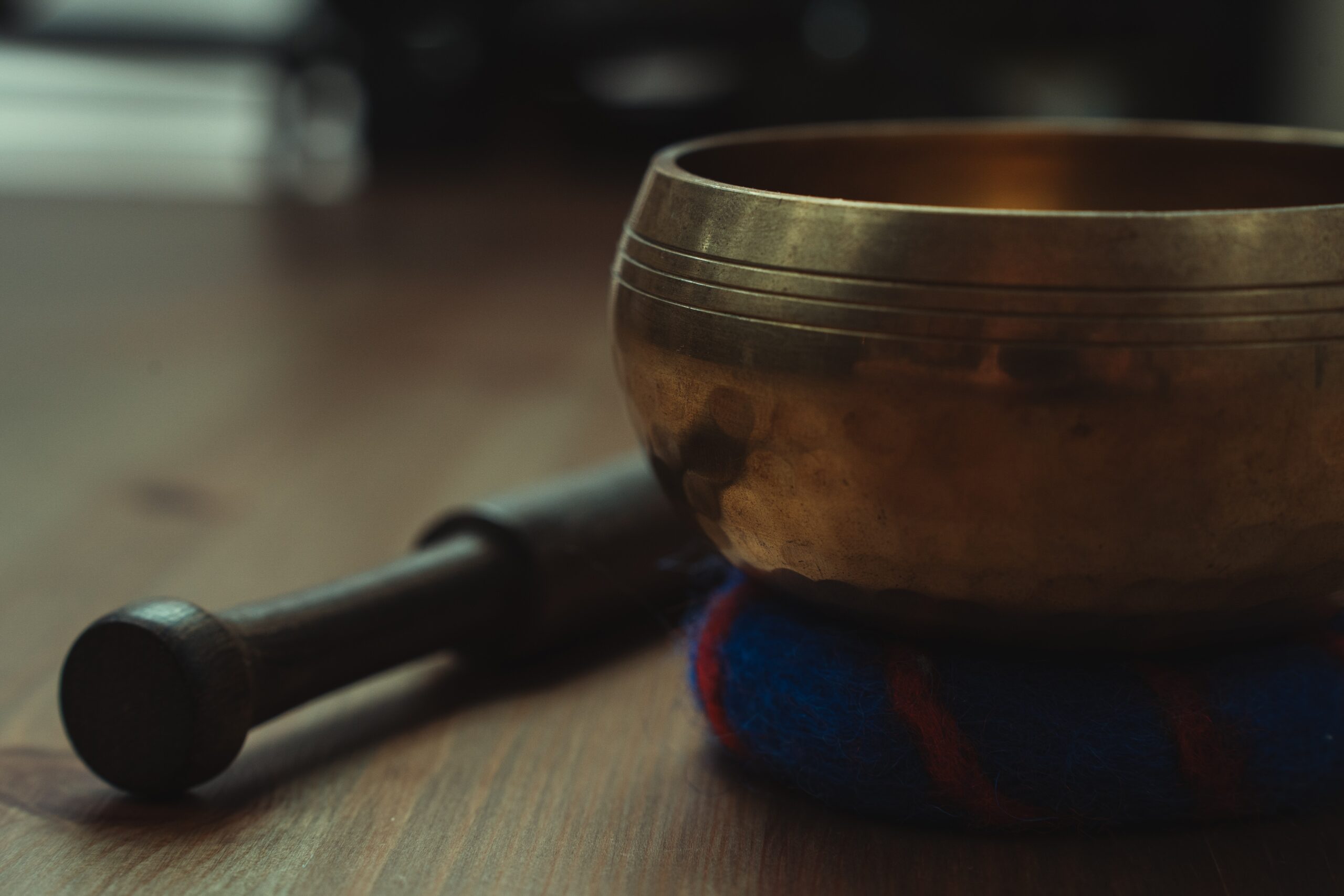
Sound therapy is making waves at local SuNu Wellness Center.
Sound therapist and massage practitioner Jessie Daniels clearly remembers the first time she was introduced to Himalayan singing bowls in the summer of 2018. Sound therapy practitioner Kristin Elam came to Minnetonka-based SuNu Wellness Center wearing a heavy-looking canvas backpack. “She carefully unpacked the most beautiful set of 16 metal bowls of various sizes, colors and textures and arranged them on the floor,” says Daniels, clinic coordinator.
Elam put on a sound meditation concert for about six members of the SuNu staff, and Daniels says that, during the performance, she felt a profound response to the practice. “The resonance settled around me, and I felt a very different ability to hear myself think, feel and just exist,” Daniels says. “It was a different experience than I have had previously even in yoga, prayer, meditation or other forms of energy work.”
Elam joined the practice that fall as an integrative health coach and sound therapy practitioner. As her practice began growing, Daniels found herself with the opportunity to study under Elam and explore her own burgeoning interest in sound therapy. When Elam moved out of state in 2020, Daniels was the natural successor to her practice.
Forms of sound therapy can be found throughout history and often connect to religious and spiritual practices.
Historians trace the invention of Himalayan singing bowls to Tibet, quite possibly around the time of the Buddha’s birth. Today, craftsmen in Tibet and Nepal still employ the same ancient methods to create the musical bowls, including the ones Daniels uses in her practice.

Pexels/ALTEREDSNAPS
“Most often, people come to Sound Therapy for balance; relaxation; ease with anxiety or depression; to become more grounded and calm; [and] to aid with meditation and self-awareness,” Daniels says. New clients are often surprised by how deeply their bodies relax over the course of the session, she says. “Sometimes people fall asleep, sometimes tears occur [and] sometimes the ability for deep breathing returns. If they’ve never experienced it before, having the bowl-on-body portion tends to be the most profound.”
A typical first appointment begins with a health history and an overview from Daniels about what to expect during the session. “I utilize a variety of protocols for relaxation, anxiety, energy clearing, focus, etcetera, by playing the bowls in different sequences around the body,” Daniels says. She also places the bowls on different parts of the body, such as the back, stomach and heart, using a mallet to “sing” the bowl.
“Ideally, we are creating a safe and calm environment for people to relax and allow their body to awake into deep peace and knowing,” Daniels says. “It really depends on what people [need] for the session [in terms of] what they receive.” Most clients come in monthly for a 45–60 minute session, but Daniels notes that some may come in more often if they’re experiencing stressful periods of their life.






















